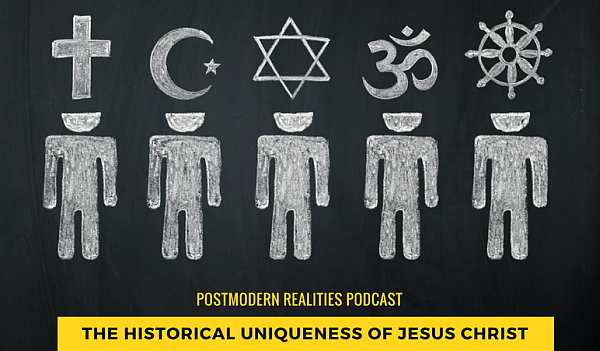“There is little doubt that the New Testament makes several unique claims concerning Jesus. Some of these exclusive comments regard claims that Jesus Christ was deity, or that He is the sole path to salvation, or that He was raised from the dead. The claims and deeds of Jesus become even more distinct when compared with the founders of other religious traditions like Buddhism, Hinduism, Confucianism, or Zoroastrianism. Crucially, the claims and actions of other religions’ founders encompass highly significant historical issues. The most common problem involves the time intervals between the claimed teachings or events and their recording, with usual gaps of hundreds to well over a thousand years. In contrast, the Gospels were written within a few decades after Jesus. Another significant problem concerns identifying when some founders such as Buddha or Zoroaster actually lived, involving differences of a thousand years or more. Hinduism faces huge problems regarding the extant date of the Upanishads, whether Hindu scholars think Krishna even lived, and treating the potential millennia gap with the Bhagavad-Gītā.
Finally, scholars have too often placed world religious claims approximately on a par while failing to look critically at the historical case for the New Testament writings and events vis-a-vis non-Christian claims. This has led to various confusions such as viewing all religious claims as being equally true or likewise historical, or that one religious truth automatically requires the truth of others. Overly critical attitudes toward Christian beliefs while hardly posing any similarly tough questions to the almost always unevidenced, non-Christian beliefs reveals a scholarly double standard.”
This Postmodern Realities episode is a conversation with Journal author Benjamin Shaw about his coauthored (with Gary Habermas) feature article“The Historical Uniqueness of Jesus Christ among the Founders of the World’s Major Religions” in the Volume 41 #4 (2018).
We’d also like to invite you to subscribe to the Journal. To subscribe to the Journal, please click here.
When you to subscribe to the Journal, you join the team of print subscribers whose paid subscriptions help provide the resources at equip.org that minister to people worldwide. These resources include our free online-exclusive articles, such as this review, as well as our free Postmodern Realities podcast.
Another way you can support keeping our resources free is by leaving us a tip. A tip is just a small amount, like $3 or $5, which is the cost for some of a latte, lunch out, or coffee drink. To leave a tip, click here.
Other articles and podcasts related to this topic:
Postmodern Realities: Episode 053: Changing Attitudes toward the Resurrection of Jesus
Hank Unplugged: Cold-Case Christianity with J. Warner Wallace
Hank Unplugged: The Resurrection with Gary Habermas Part 1
Hank Unplugged: Resurrection with Gary Habermas Part 2
Changing Attitudes Toward The Resurrection Of Jesus
Mythicism and the Public Jesus of History
Why the Followers of Jesus Recognized Him as Divine
Jesus as God in the Second Century
Defending the New Testament Jesus
The Jesus Mysteries: Was the “Original Jesus” a Pagan God?
Jesus and Buddha: Two Masters or One?
